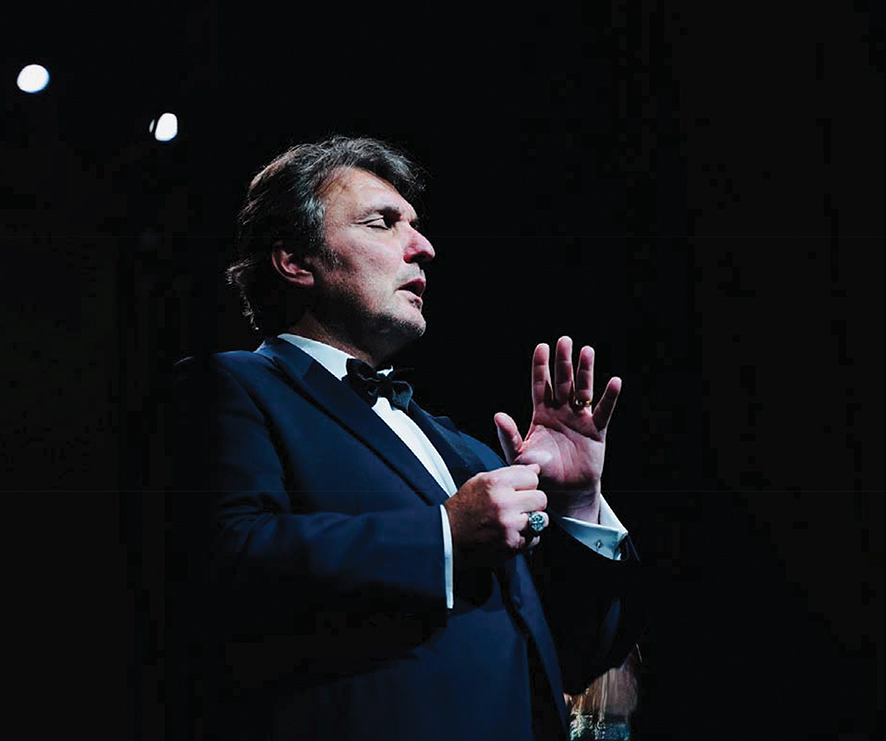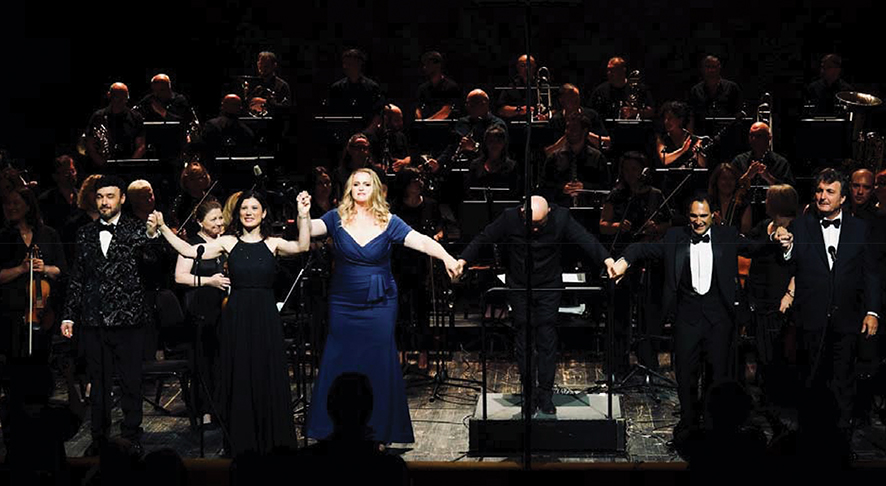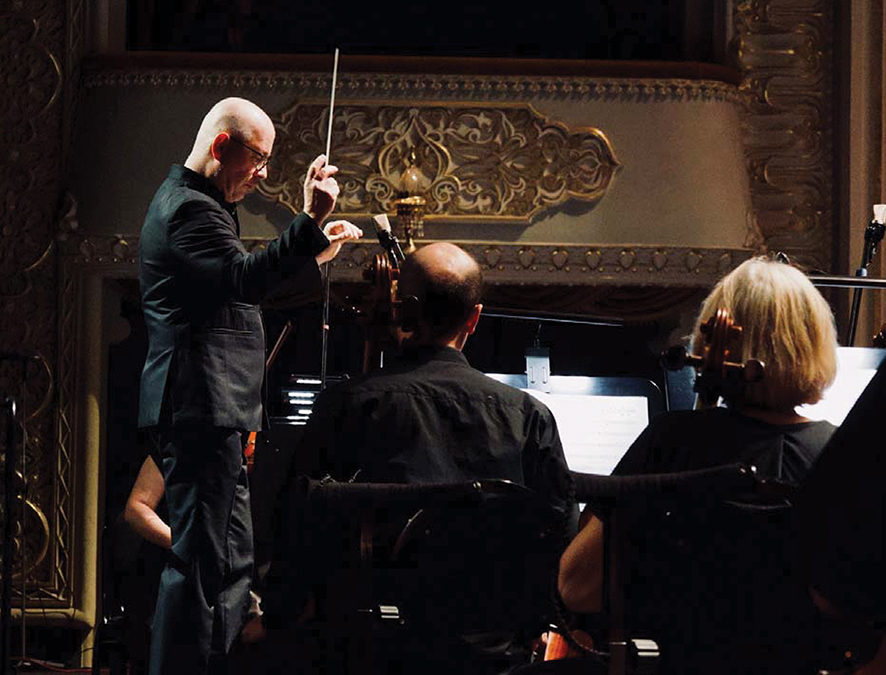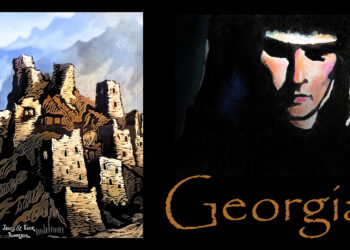Opera has always been more than music—it is a theater of power, desire, fate, and freedom. On the night of June 10th, within the golden-hued walls of the Tbilisi Opera and Ballet Theater, these forces returned in full majesty. The Opera Gala Concert—a centerpiece of the 3rd Toradze International Music Festival—was not merely a parade of arias but a statement of cultural intent: Georgia belongs to the world of serious music, not as an outsider or consumer, but as a producer of its future.
At the helm of the evening stood Carlo Montanaro, one of today’s most subtle yet commanding conductors in Italian repertory. Beneath his baton, the Tbilisi Opera and Ballet State Orchestra became a dramatic narrator in its own right. Five internationally acclaimed vocal soloists—Ludovic Tézier, Rachel Willis-Sørensen, Annalisa Stroppa, Francesco Demuro, and Giorgi Andguladze—each brought their individual instrument to bear on a meticulously constructed program of Rossini, Verdi, Donizetti, and Bizet. What emerged was not a conventional gala, but a drama in fragments: a distillation of 19th-century operatic ideology performed with 21st-century urgency.

Rossini’s Barber of Seville overture was the evening’s spark—and a shrewd programming choice. Montanaro led it with dynamic elasticity, not allowing the charm to slide into parody. The winds were crisp, and the crescendo curves were carefully carved rather than inflated. This was not Rossini as comic relief, but Rossini as a formal architect—a composer who understood the nervous theatrical engine of opera and how to wind it with cunning precision.
Annalisa Stroppa’s “Una voce poco fa” followed like lightning after the overture’s thunder. Her Rosina was not a flirt but a strategist, playing with dynamics and articulations like a master chess player. Her chest register was rich, even defiant, while the upper reaches of her mezzo sparkled with crystalline agility. Every ornament felt purposeful—a testament to bel canto’s theatrical intelligence, not mere virtuosity.

Verdi dominated the central arc of the program—and rightly so. His operas are less about “drama” than about pressure: emotional, political, metaphysical. Rachel Willis-Sørensen opened the Verdi sequence with “Tace la notte placida” (Il Trovatore), offering a vocal line of glowing steel. Her voice has both amplitude and emotional control—she lets the line breathe, never pushing for effect, but always letting it expand toward its natural emotional crest.
In the duet “Udiste come albeggi,” Willis-Sørensen was joined by Ludovic Tézier, whose vocal authority is as undeniable as it is understated. Tézier brings old-world discipline and Gallic refinement to Verdi’s long baritone arcs—his phrasing was sculpted, with a legato that made every phrase a paragraph, not a sentence.
Then came Giorgi Andguladze’s colossal “Ella giammai m’amò.” This is an aria of pure psychological theater—Philip II is not so much singing as unraveling. Andguladze gave a performance of remarkable restraint and depth: no bombast, only gravity. His dark timbre, perfectly centered pitch, and unforced resonance evoked a monarch crushed by his own grandeur. When Tézier and Andguladze later performed the Simon Boccanegra duet, it was like a summit meeting of two ideologies—nobility in crisis, authority transfigured into doubt. Montanaro shaped the orchestral line like a sea in flux, both men nearly whispering over it.
The tenor turn came via Francesco Demuro, whose “La donna è mobile” was sung not as a circus trick but as a bitter joke—Verdi’s satire of male cynicism, here delivered with ironic elegance. In contrast, his “Una furtiva lagrima” was introverted and lyrically shaded, less a public confession than a secret murmured to oneself. The emotional weight moved from outside to inside—and in this contrast, Demuro revealed his true artistry.
The climax of the evening, in terms of pure theatrical integration, may well have been the *sextet from Donizetti’s Lucia di Lammermoor. Rarely is this number performed with such tight structural balance and vocal independence. Each singer occupied their emotional territory—demonstrating the genius of bel canto’s polyphonic psychology.

And finally, Carmen: L’amour est un oiseau rebelle is an aria so often oversung, misunderstood, flattened by cliché. But Annalisa Stroppa reclaimed it. Her voice—earthy, rhythmically alert, and charged with subtext—reimagined Carmen not as an exotic seductress but as a political figure, a woman at war with society’s need to possess her. The rhythm pulsed like a heartbeat; Montanaro let the tempo breathe as if the orchestra itself were following her.
Montanaro conducted with astonishing vertical clarity. He does not impose himself on the music but draws its internal architecture into visibility. Tempi were flexible but never indulgent. Phrasing breathed without distortion. The Tbilisi Opera Orchestra responded to this precision with renewed energy and became full partners in the dramatic contract. It reflects the Festival’s growing ambition: to elevate Georgian orchestral performance to international operatic standards by grounding in serious repertoire and thoughtful leadership.
Named in honor of Alexander Toradze—the late Georgian-American pianist whose combination of volcanic expressivity and Slavic-French intellectualism made him one of the most singular artists of the late 20th century—the Toradze Festivalis about more than remembrance. It is about realignment.
By inviting international stars like Maxim Vengerov, Gianandrea Noseda (the festival’s patrons), and a cohort of elite performers to collaborate with Georgian institutions, the Festival reasserts Tbilisi as a center of classical excellence—not peripheral, but integral. Backed by the Toradze Foundation, Ministry of Culture of Georgia, Georgian Chanting Foundation and supported by institutions like Tbilisi City Hall, the University of Alabama, and Smart Capital Group, the festival is both inward-looking and globally engaged. It fosters Georgian musicians while anchoring them in networks of international exchange. The opera gala concert distilled this mission: to make world-class music here, and to make here part of the world.
As flowers rained down and the curtain fell, the applause was not just for the performers but for a new cultural horizon being carved in Georgia. The Toradze International Music Festival is not a spectacle—it is a process. And this Opera Gala, with its towering interpretations and sensitive craftsmanship, may well be remembered as one of its defining moments.
By Ivan Nechaev














